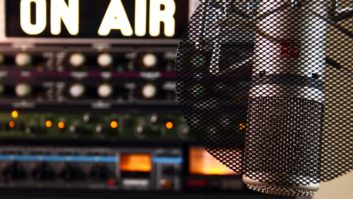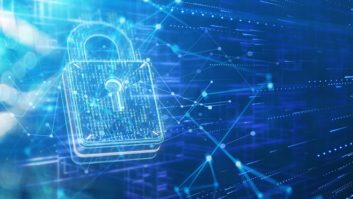In a recent column I mentioned Radio Survivor, a blog I enjoy but took to task for including pirate radio in its mission statement. I wrote: “I do not endorse illegal radio, and neither should you.”

Arcane Canticle/Flickr
The blog’s Paul Riismandel believes I forgot my radio history. He wrote a followup giving pirate broadcasting major credit for prompting creation of the low-power service.
“I would argue that former FCC Chairman William Kennard was responding to dual pressures when he spearheaded the creation of LPFM,” Riismandel wrote, an opinion shared by some others in the movement.
“Yes, on one hand he was answering the calls made by a growing number of civic, community and religious groups for an expansion of community radio. But on the other hand, Kennard was actively battling, and arguably losing, a war against a rising tide of unlicensed broadcasters that the commission was unprepared to defeat.”
He believes that “Kennard and his fellow commissioners wisely recognized that creating a low-cost low-power radio service would help take the wind from the rhetorical sails of many micro-broadcasters, while also making the FCC appear supportive of true community service radio. The commission also was betting that some would-be unlicensed broadcasters would abandon their plans in favor of pursuing an actual LPFM license. …
“Like so many other underground activities, unlicensed broadcasting often exists to fill a need that is unmet by licensed or legitimized services,” Riismandel believes.
He continued, “The most responsible pirates run technically clean operations, taking care not to cause interference with other stations. I am not a fan of pirates who broadcast dirty signals that trounce on adjoining stations and spit out interference.”
But he concludes that, “We would not have LPFM if it were not for the pirates and micro-broadcasters who forced the FCC’s hand. … Pirate radio has made significant contributions to broadcasting in the U.S., and our dials would not be the same had it never existed.”
Not all pirates are equal
I like Radio Survivor but I respectfully disagree with Riismandel’s conclusions. With your forbearance, I’ll dwell on the subject a tad longer.
I haven’t forgotten my radio history. Radio World covered the conception and rollout of LPFM from Day 1, profiled micro-broadcaster Pete Tridish and covered the opinions of other advocates of change. I knelt on the floor of a convention center lobby with a notebook in hand as I tried to interview LPFM advocates who had bolted themselves together in protest and had to be cut out by police with power tools.
I know that many people, including some of our own contributors and writers, have a fondness for what they deem “pirate” radio, even having started their own garage operations as young people.
Sympathy for such outlets is also an understandable and common viewpoint in our modern age of large media corporations with access to limited spectrum. I understand too that for many observers, benevolent micro-broadcasters who operate clean facilities should be considered as distinct from evil dirty “pirates” who don’t give a damn.
But I don’t agree that pirates forced the FCC’s hand. While micro-broadcasting played a small part in pressuring the FCC to explore wider access, the historic change of LPFM came about due to a great amount of vigorous political and business advocacy, cultural pressure, spectrum wrangling and more. It had many elements and came due to the work of many interests. The commission was not forced into change by illegal broadcasts, any more than it is forced into change now by the many continuing illegal broadcasts that intrude on licensed operations in New York, Florida and elsewhere.
LPFM’s backers eventually succeeded against institutional resistance because they realized they had to play within that system, identified some high-level political backers and then were able to convince enough regulators and legislators that new stations really weren’t a threat to powerful entrenched interests, despite protests from the incumbents. Micro stations may have added some external pressure, but those illegal broadcasts felt mostly like an annoyance rather than a significant factor in the political equation.
But even if we accept the premises that there are “good” pirates as opposed to “bad” pirates, and further that “good” pirate radio somehow drove the FCC to act, I hold to my conviction that people who want to be part of radio must start by respecting the rules of radio.
Our broadcast spectrum is a resource that must be managed if it is to be useful. The system created to manage it may be flawed but it remains the only one we have.
When any individual is free to decide that he or she can ignore rules managing the system — even for well-intended reasons — the system will break down.
Let’s all grab a channel
I happen to support legal LPFM and other forms of community radio; in this I differ from some others in broadcasting.
But thousands of hard-working professionals, commercial entrepreneurs, college station managers, corporate engineers, church pastors and others have established radio signals and served their communities while respecting the law — often incurring considerable cost to do so.
Many of them would love to crank up power, move to an open frequency, toss their public files or create a new station for themselves; and they could probably articulate convincing “civil disobedience” reasons for doing so. But they don’t do it because they are responsible citizens of radio’s larger community.
We live in a country of laws. In extreme circumstances — when severe societal wrongs are not resolved by legal means — civil disobedience is appropriate. But in my view, the tactic of illegal broadcasting did not deserve a place in the strategy of an otherwise well-intended movement.












